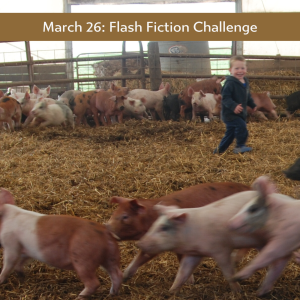What time is it when an elephant sits on the fence?
Time to get a new one!

This week, when Charli Mills at the Carrot Ranch challenged writers to In 99 words (no more, no less) write a story about a broken fence. You can mend it, leave it, or explain its place in a story. Go where the prompt leads, I spent quite a bit of time fence sitting, undecided about which fence story to choose.
As you know, there are many types of fences: literal, metaphorical, even imagined. Fences are usually built to contain things, to keep people or things on one side or the other, or to define a boundary and possibly restrict passage. But the term “mending broken fences” has a different nuance of meaning. In this use, it means to repair a broken relationship as opposed to improving boundary security.
But which fence should I choose?
Should I share some history?
Rabbit-Proof Fence
This year marks the one-hundredth anniversary of my family (grandfather, grandmother and their young family – my father, the fifth of nine, was born three years later) taking up residence on a property owned by the Rabbit Board. My grandfather was a boundary rider until 1955, repairing the fence built to protect farming and grazing lands from the destructive introduced species. His youngest son replaced him, continuing until the role terminated in 1957. My uncle purchased the property from the Rabbit Board and lived there with his family until his death this year not long after the anniversary celebrations.
or perhaps reminisce?
The Cow Jumped Over the Fence
Until I was six, my parents were small crop farmers. The farm didn’t generate much income and there were more bad years than good. To help feed the growing family (there were six of us by then) Mum and Dad invested in chickens for both eggs and meat and a milking cow. The first cow knocked down the fence and escaped to freedom. Dad repaired it and bought another cow, which squeezed under the fence. After a third cow jumped the fence, Mum and Dad decided milk deliveries were a better option and we kids never learned to milk.
Note: I did write about this incident, a little differently, here.
Should I plan a lesson?
Teaching positional prepositions with The Elephant’s Fence
Make a fence from pop sticks.
Make an elephant using different-sized pom poms for body and head; pipe cleaners for legs, trunk and tail; paper or felt for ears; and googly eyes.
Place your elephant according to these instructions:
- Beside the fence
- In front of the fence
- Behind the fence
- Under the fence
- Between the palings
- Next to the fence
- Above the fence
- Below the fence
- On the fence.
Now choose a place for your elephant to be. Tell your elephant’s story:
- Why is it there?
- How did it get there?
- What is it doing?
- What will happen next?
or attempt a story?
Sometimes it is the imaginary fences that can be more limiting. Sometimes it’s better to leave things that aren’t broken in the first place.
Broken with intent
The fence was too high to jump or even see over, no footholds to climb, and palings too close to squeeze or even peer through. It hugged the soil too compacted to dig. It seemed impenetrable, and so intrigued. He stacked boxes for makeshift steps—not high enough. Finally, he hatched a plan—balloons! He blew them big and tied them tight, attached some string, and waited. And waited. Then a gust of wind lifted him high, over the fence, where another, just like him, smiled and said, “Should’ve used the gate; latch is broken—always open to friends.”

Thank you for reading. I appreciate your feedback. Pleasure share your thoughts.















